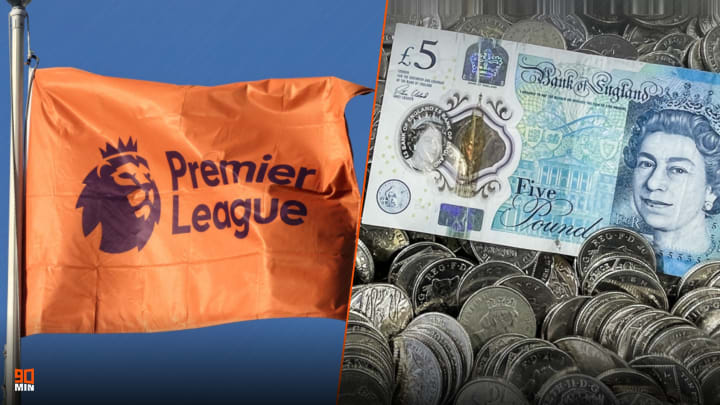What are Premier League parachute payments?
- The Premier League is the richest division in world football by some margin
- Relegated sides receive parachute payments to help them cope with relegation
- Parachute payments have been part of English football since 2006/07

The Premier League is the richest football division in the world, with the bulk of that cash coming from enormous television rights deals.
With teams experiencing financial difficulties when they are relegated from the English top flight, there has to be plans in place to help soften the blow of demotion. Without financial help after dropping into the second division, some clubs simply wouldn't be able to compete.
Here's why parachute payments were brought in and what they do.
What are Premier League parachute payments?
Parachute payments were first introduced in the 2006/07 season. For two seasons following relegation a club would be given half of the per club basic television money from the Premier League, lowering the risk of a team going into administration due to higher costs - player wages, transfer fees, etc - they would experience in the top flight.
Payments worth £1m were given to each Championship team to reduce concerns about the impact that parachute payments could have on the competitiveness of the second tier.
The Premier League defines parachute payments as the following: "Parachute payments are made to clubs after they are relegated from the Premier League.
"They allow clubs to invest in their teams, and wider operations, in the knowledge that should they be relegated they have provisions in place to re-adjust their finances. Since 2016/17, payments are made over three years, with the amount received decreasing after each year."
There are two types of payments the Premier League distributes to each English Football League club every season. They are known as 'parachute payments' and 'solidarity payments' and are linked to the value of the Premier League's broadcasting rights.
Parachute payments see relegated clubs given a percentage of the equally shared broadcasting rights each Premier League club receives. Those clubs in the EFL who are not eligible instead receive solidarity payments. These are calculated as a percentage of the third year parachute payment a relegated Premier League team would receive. This means solidarity payments are nowhere near as high or lucrative as parachute payments.
What are Premier League parachute payments worth?
As current TV deals are much more lucrative than they were ten or 15 years ago, the amount of cash relegated clubs receive from the Premier League is massive.
The payments are made over three years, with the sums received decreasing after each year. 55% (roughly £40m) of the amount each Premier League club receives as part of its equal share of broadcast revenue is given in the first year, 45% (£35m) in the second and 20% (£15m) in the third, though only if the club was in the Premier League for more than one season before relegation.
If a team wins promotion back to the Premier League while parachute payments are being made, they no longer receive said payments.
The amount of money paid through parachute payments has increased season on season due to more lucrative TV deals. The 2015/16 season saw £172.1m worth of parachute payments dished out, and by the 2019/20 campaign it had risen to £248m.
Criticism of Premier League parachute payments
Parachute payments are certainly not universally popular, with many people feeling they give far too much power to clubs relegated from the Premier League. Given demoted teams already have the benefit of Premier League money from previous seasons and more talented squads than Championship sides, some believe it creates an imbalance in the second tier.
There is also an enormous discrepancy between parachute and solidary payments, creating an even greater financial divide between Championship and EFL sides and those relegated from the top flight - impacting the competitiveness of the division.
READ THE LATEST PREMIER LEAGUE NEWS, RUMOURS & GOSSIP
feed